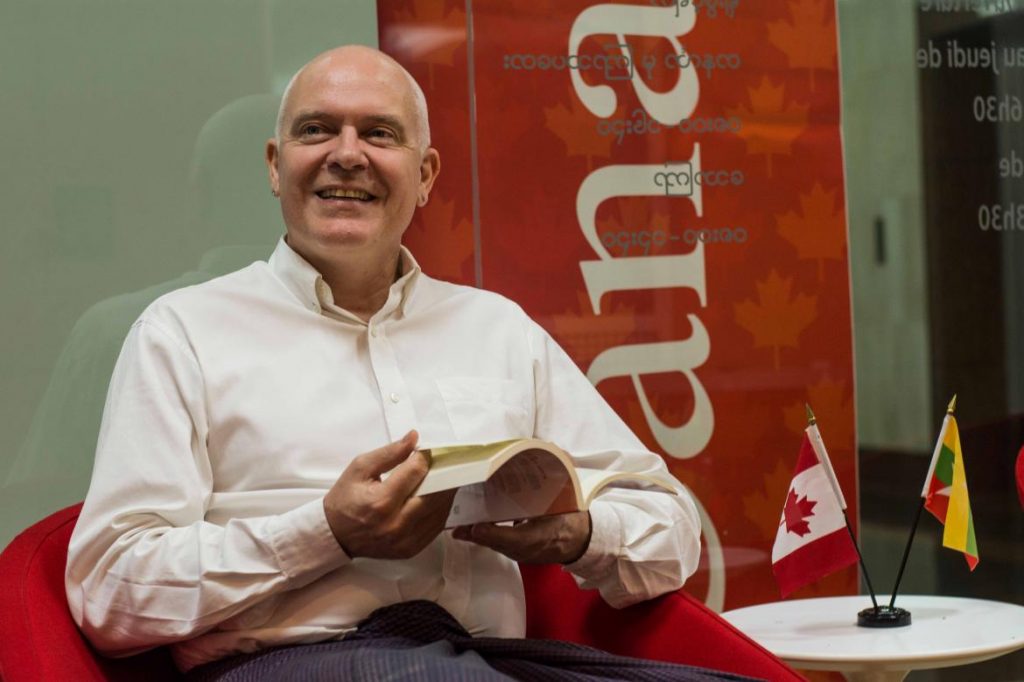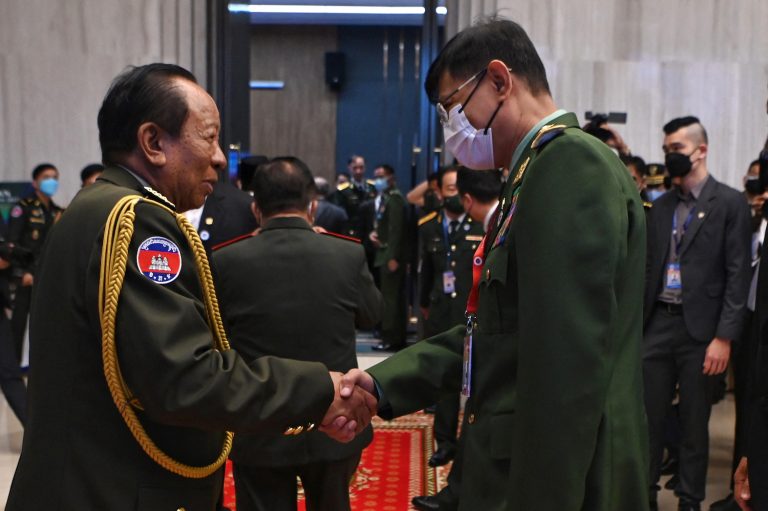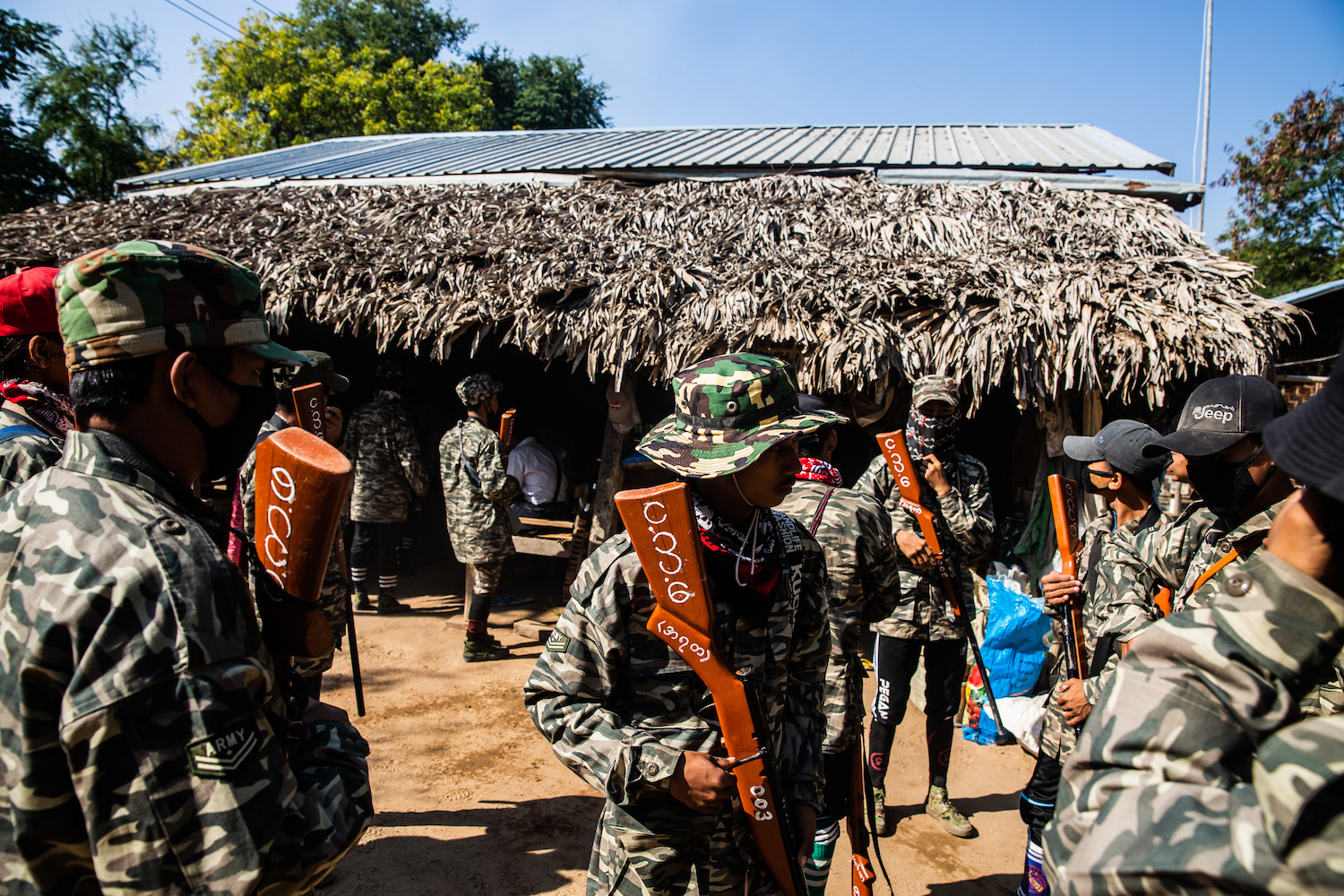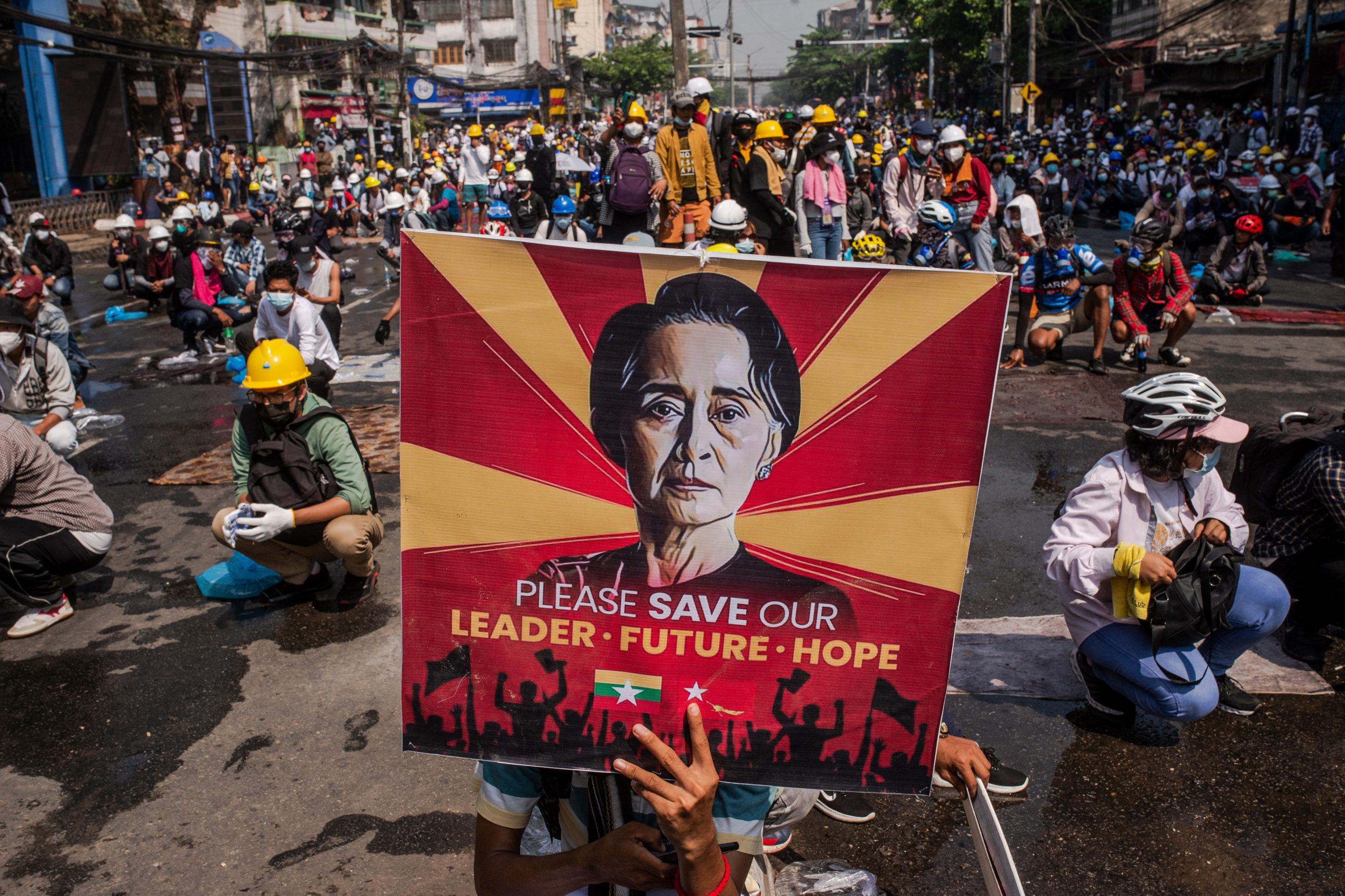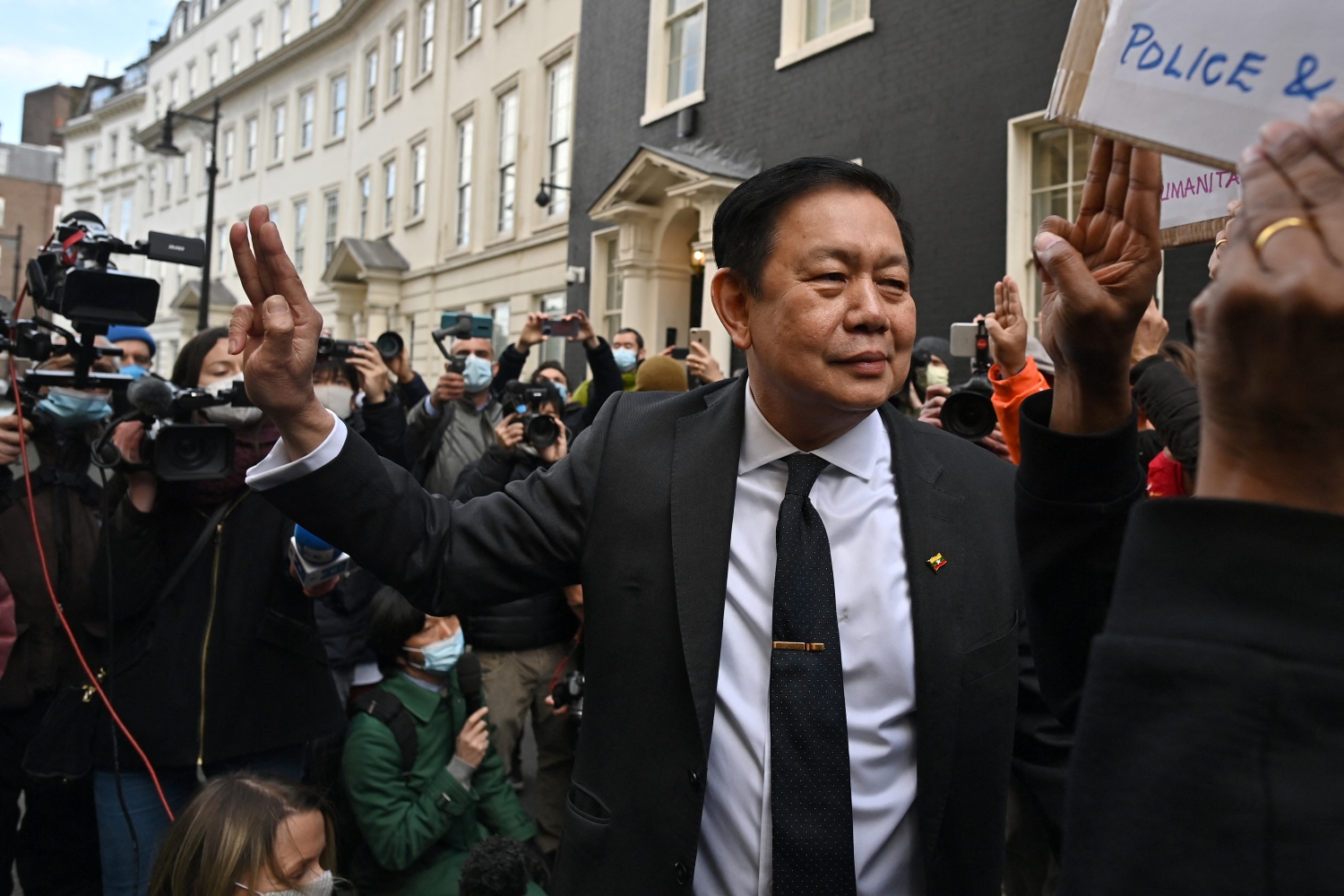Canada’s outgoing ambassador to Myanmar Mark McDowell on his decision to leave the foreign service and why young people should ‘go with their gut’.
By RITA NGUYEN | FRONTIER
You’re leaving Myanmar, after three years and three months here as ambassador. You’ve got a better insight to what this country has gone through in that time than most. What would you leave behind as a message to the youth, the next generation? Not the Daw Aung San Suu Kyis of the world but rather, the high school students?
I think in some ways it’s more exciting to be a youth here than in Canada or the US because even though you might be starting from a lower socioeconomic level, there’s a huge sense of possibility here and this is really is the place where what you do as an individual could have an incredible, transformative effect on the country.
It’s a very exciting place to be a young person. For the people in the creative world, like writers, film makers or rappers or whatever, this is such a great time to be alive because Burmese haven’t been telling their stories to the world and this is the opportunity where people all around the world are interested in Myanmar and what the people here are thinking and feeling and that’s a great time to be young and Burmese.
And what advice would you give them?
[The] same thought I would leave to the youth in Canada: it’s probably not a great idea to try to calculate too carefully the trajectory of your life. It’s probably better to try to figure out what you like to do. … You’ll do it with energy and enthusiasm and you’ll more likely be a success.
You have a long life ahead of you. I recognise that people in poorer regions have a smaller margin of error. You don’t have your inheritance to fall back on or whatever but you should be willing to … don’t think that you have to accept your first job for the rest of your life. It’s a very crooked path to finding out what you want to do. I only joined the foreign service at age 32.
Support more independent journalism like this. Sign up to be a Frontier member.
Before I was just kind of loafing around. I was mostly in university and so covering up my loafing. Then dropped out and went to Europe for a year then back to university then dropped out and went to China for a year. But that was useful because I learned in my year to speak Chinese, which is probably more useful in my current job than what I learned in university.
It’s better to go with your gut. That’s why I’m taking leave from the foreign service. I have done the most interesting job and its time to do something else that will be different or fun or frightening.
Have you decided what’s that’s going to be?
No, not at all. I really haven’t. I was just at this reception and everyone was asking and I was saying, I really don’t know and it’s like, ‘Oh, okay you’ll tell us next week.’ And that’s part of the fun of it. If I knew and had something set up for October 1, it would be a little bit boring.
What advice do you have about living in Myanmar? What are the things you would have told yourself to prepare?
Oh, I would have learned the Myanmar language. I came to Myanmar a lot during 2003-07 when I was working at the embassy in Bangkok. I was in my early 40s. I covered Burma and started to learn Burmese at that time but didn’t pursue it when I came back because I was just too busy. It’s just life – you think you’ll get to it but you’re busy, busy, busy and then suddenly it’s three years, three months and I have a week left.
Okay, so let’s break that down. What’s your morning routine look like?
I don’t have a routine. That’s one thing I really like about my job, it’s that I don’t have a routine.
I’ll tell you the one routine I have, which is I try to structure the office like this. I ask all my people to have all their meetings on Mondays. I don’t want people to have the excuse for the rest of the week to not be able to do something because of a meeting. So we get all meetings out of the way on Mondays. I try to get all of my in calls in the morning so I can be out meeting people in the afternoons.
One of the questions I always ask is, what is the one book that you have given away the most as a gift?
Politics and the English Language. I’ve given it to a lot of staff, especially interns and young staff. Because it’s short, it’s like 25 pages long, and it makes one clear point, which is to write in a clear understandable way and not to try to impress people. It only makes one point but it makes it so well and really quickly and it’s such an important point.
What’s the favourite part of your job?
Meeting people who I otherwise wouldn’t meet … I know I should say being a witness to history, national ceasefire accord, and that’s really interesting too, but it’s more being able to have dinner with different people.
What’s been your most memorable experience?
The election day, for sure … I went to Bogale [in Ayeyarwady Region] … There was this excited tension. A lot of nerves because there was this chance that there would be some sort of chaos like the voter lists are wrong and people can’t vote and they would get mad. So people started to line up very early and these lines were getting hugely long by 7am and there was a little bit of a worry that maybe it’s because there weren’t processing people fast enough.
Everyone starts to realise that no, it’s because everyone is very enthusiastic and just wants to get there early and everyone is perfectly well behaved.
Around 8am we went and had a tea and the mood was starting to change already. Enough people had voted and nothing had gone wrong and no one had heard any rumours about stuff happening and you could see as the morning progressed that the mood was getting more and more festive.
Then we were going from polling station to polling station and at around 9am, these two women who were really beautifully dressed up and taking pictures of each other in front of the polling station and then pictures together and with the foreigner. It was then that I realised that, okay this is going to work out and they had made the change from some kind of stressful, worrying event to a celebration.
Back in Yangon in the evening, we started to watch the election count. And they just let anyone watch and take photos and take videos and so on. And they were reading out the ballots one by one and it was like ‘NLD, NLD, NLD – and it wasn’t an NLD area – NLD, NLD, NLD’. And at that point I realised that they were going to win this. If they were getting 90 percent of the vote here then it’s a done deal. … It was just such an exciting, exciting 24 hours.
One of the things is – [I’m] not sure if this was documented well but the day before [the election] there was a big flurry of conspiracy rumours. And I remember someone saying that, ‘Oh, we just heard that some hospital threw out all the votes and substituted all these votes for the USDP,’ and so there was all this last minute, urban myth making.
There was a lot of talk going into it that there would be delays.
I won a bottle of wine. I bet someone there would be no delay. It was someone from an NGO. There’s this history of Western NGOs having a very negative view toward Burma and not being able to comprehend the idea that it was a real reform and so I was always doing battle with all these people who would say, the elections are going to be cancelled, it’s going to be delayed.
I kind of resent all of these groups for ratcheting up the stress levels and causing all kinds of doubts about the freedom and fairness of the elections – when in fact it was such a model – and there’s been no kind of apologies from any of them. It’s a valid job to identify a problem and raise awareness about them but the kind of apocalyptic fearmongering – the whole Burma’s backsliding, the human rights situation is worse now, et cetera – it’s so self-serving.
You’re moving on – do you really have no idea what you’ll do next?
It’s a question of picking one thing. … I’d be very interested in doing similar things to what I do here like humanitarian work or development or political, working with parliament or working with political parties. What would be really fun is to be in the arts but it’s just not my background.
So I think I will end up doing something that’s similar but I would like to work for an organisation which is close to the ground, close to the action; more results driven and less process driven.
Top photo: Teza Hlaing / Frontier


